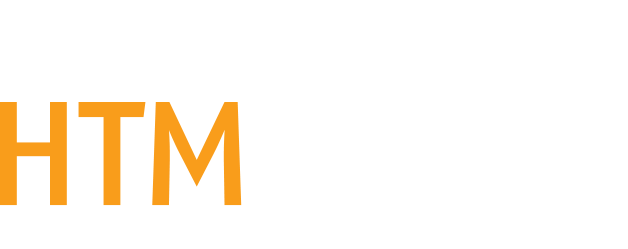By Ray Marden, CBET, CHTM
Quality assurance and performance improvement (QA/PI) programs are designed to ensure success throughout the health care landscape. Some experts feel that QA/PI will become a major contributor to the success of HTM personnel and programs alike. These programs may have prevented some in-house programs from being outsourced. At their core, QA/PI principles assume that no one person, policy or procedure is ever perfect. They assume the best way to improve outcomes is to evaluate, plan, change, monitor and repeat.
The principles of constant improvement and continuous monitoring are incredibly powerful when applied by individuals managing their own skill sets. Anyone interested in advancing their career would be remiss to overlook the importance of developing what are known as soft skills. This is especially true in the HTM field at this time.
Industry experts agree, soft skills are key!
In a recent panel discussion, several industry leaders gathered to provide guidance to individuals aiming to take their HTM careers to the next level. While there were many good tips related to interviewing, networking and training, the panel unanimously emphasized the desire for applicants bearing this seemingly illusive set of characteristics. They are all quietly, but actively, seeking these immeasurable attributes.
Industry leader Dave Francoeur of TKA said, “The most significant tool a technician can carry is their ability to effectively communicate with the clinical staff. One needs the ability to successfully tell someone the reason the device is not working is because they are not using it right. Doing this in such a way as to not offend or embarrass them is the greatest gift/skill a technician can have.”
In HTM it’s just as important to be able to speak effectively to a housekeeper as it is a surgeon or CFO, but communication and conflict resolution are but two of the soft skills that HTM professionals need in their tool kit to move seamlessly through various HTM settings.
Jared Wilson of Insight HTM adds, “It’s less about fixing the equipment and more about helping clinicians do their jobs properly. It’s important to listen actively. You may already know the problem but for trust to be established, the clinicians need to feel heard.”
True active listening is powerfully disarming. Being right naturally makes someone else wrong. There is a co-empowerment in holding to the mission and helping others do so effectively. Other crucial soft skills are various people skills, body language, social skills, personal character traits, attitudes, mindsets and emotionally maturity.
There’s a common myth circulating in business circles that soft skills cannot be taught or developed, that a few so-called unicorns were placed amongst us who were born with superior individuality and that only those people are in-demand at present.
It’s true that calm, confident and self-responsible people are in demand, but let’s ditch the idea that soft skills can't be learned or acquired.
Maybe what leaders are saying when they gently tiptoe around dialogue regarding soft skills is ... are you a grown-up? Mature adults recognize adult characteristics and like to work with those who possess them. It's not that these skills can't be taught, it's just that professional organizations can't take the time and energy necessary to develop them in their employees while accomplishing the mission of the business. Many leaders lack the capacity to teach traits that they themselves learned from healthy adults early in life or taught themselves at the school of hard knocks. They simply won’t do it. They’ll find out what you can do and plug you in there. They’ll accept what immaturity they see as simply a part of you that your resume didn’t show. Then they will adjust operations accordingly while continuing their endless search for those already in possession of the desired skill sets.
It shouldn’t come as a surprise that the folks who are advancing rapidly in their careers naturally exhibit some of these skills and practice them daily. And since soft skills are really an emergence of your own character, it’s important to realize that they can always be practiced, but never faked. They can be embodied, but not given or transferred the way other skills can be. For instance, a person can be taught the mechanics of active listening, but until they care enough to stop talking and quiet their incessant mental dialogue, they won’t realize that understanding others is more useful than being right. They’ll remain a disconnected know-it-all with an agenda. Managers with soft skills will see this as plain as the sun in the sky, while the know-it-all goes around with no clue why they aren’t getting a promotion or a second interview despite possibly being the most qualified.
Rely on yourself. You can learn to honestly evaluate yourself. You can make a plan for yourself. You can measure yourself. You can adjust the plan and ask yourself to learn new things in this independent and ongoing process of improvement. Only the real you can do this. Your ego will likely resist. It loves complaints and comparisons, right and wrong, black and white. You may feel stretched and exposed and it’s possible that you’ll feel embarrassed of your findings as you grow. Thankfully there’s no test, no one to compare yourself to, only the endless practice arena called humanity.
There are many ways to develop soft skills. Because we’re HTM, we can take the performance improvement project (PIP) approach. The approach that no matter how good you are, there is always room for improvement.
Remember that these are not technical skills. They are not industry specific. They will not show up as direct measurables in an interview or performance review. This means you get to surprise the world with them when you’re ready.
A good place to start is body language. Intend to be the presence in the world that you mean to be. Then, begin your PIP. Some say 95% of communication is non-verbal. Own your non-verbal “speech” by tracking how you are carrying yourself over a period.
You can also take courses to improve your writing or speaking abilities or work on the skill of active listening. Then practice, practice, practice. I’ve been working on this one this year and the results are amazing! Very few of us are taught to hear people in our culture. It can be strangely difficult to listen, I mean really listen, to what people are saying. Listen to what you are saying. Listen to all the different voices in your head, choose which one speaks carefully and practice bringing it forth with gentle confidence. Practice developing the empathic capacity to put yourself on the other side of what you are writing or saying to anyone.
Look for reasons not to take things personally. Instead look for ways that your own thoughts and feelings are disconnecting you from others or the mission instead of leading you to solutions, this is all the power you need to change the world around you. Your baggage isn’t meant to be worked out on your colleagues, but the workplace can be a great place to begin unpacking it and seeing how it’s affecting your life and the achievement of your dreams. Life will feel easier every day. Your social or family circle might resist, or be oblivious, to your growth at first. Yet, the workplace will likely rejoice and embrace your newfound skills. This can be incredibly empowering and is likely to improve your overall satisfaction with life itself.
However you choose to develop yourself will impact your career. If you choose to do nothing, nothing will change. If you embrace your potential and feed it, everything will change.
How To Counteroffer Your Salary After Receiving a Job Offer
If the role you want offers something other than what you expected from it during the negotiations, then it’s reasonable to present a counteroffer.
Job Hopping: When It Makes Sense And How To Do It Tactfully
The job market has changed, with job seekers having access to more options than ever before.
4 Ways to Follow Up After a Job Interview
What’s the best way to follow up after a job interview?
6 Tips On Staying Motivated and Productive for the New Year
We hope these tips are helpful in helping you stay motivated and productive in the new year.
14 Ways to Stay Focused at Work Through the Holidays
There are so many competing demands and expectations during the holidays that it is very easy to get overwhelmed and even burn out.
Keeping Employees Engaged
What if I told you that only about 32 percent of U.S. workers claimed to be engaged in their work? Would you be surprised?
Ex-Google recruiter shares the No. 1 thing to do after applying for a job: ‘Everyone fails’ at it
Tthere is one more step that comes after applying which “everyone fails on,” says Nolan Church, former Google and DoorDash recruiter and the current CEO of Continuum, a talent marketplace for executives.
Summer Vacation Is Officially Over. How To Ease Back Into Work
Allowing time for reflection and planning can help avoid the back-to-work blues.
6 Success Tips for Young Professionals
While there’s no secret formula to becoming successful in the workplace, there are steps you can take and skills you can build during the early stages of your career that can help you move toward your long-term goals.
Tips for Deciding Whether to Apply for a Job
How can you tell whether you should apply for a job—or not? Busy job seekers often need to be
careful about which jobs to target.














